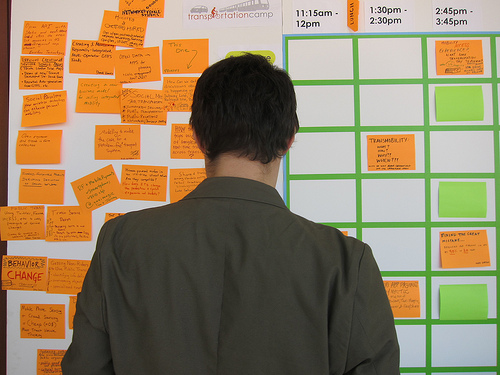Becoming A Master of Change
Which is more important: efficiency or customer service? Stop and think about it because the answer isn’t as obvious as you might think at first.
I spent a good portion of my adult life working in the industrial sector managing logistics people and processes. One of my primary functions was to manage a balance between the ‘ideal’ goals of peak operational efficiency and exceptional customer service. Too often, one had to be achieved at the expense of the other. Many times, tough trade-offs were made.
Now as a small business owner I find myself facing some of these same issues. As I strive for operational efficiency, I have to be ever mindful of the impact of my initiatives on my clients.
As I’ve been building my business, I’ve been carefully constructing a clear set of expectations with each client and colleague about such things as how we work together, our expectations of each other, and what happens when things go wrong. I’ve created a comfortable status quo – and that’s not a bad thing.
Conversely, growing my company will require change, in fact lots of change. Change means risk, and risk means uncertainty. Uncertainty kicks established expectations out the window. It’s harder than starting fresh because first I have to undo in order to redo differently.
The challenge is that there are two conflicting goals – efficiency and customer service – and it’s easy to take sides. I have to remember this: if I start my thinking on one side of the equation, I have to make sure to end my thinking on the other side, so that I fully assess the potential impact of my ‘improvements’.
One little change can ratchet up the uncertainty factor disproportionately. For example, a small change in my invoicing process might leave my clients wondering what else is coming. Suddenly that carefully established status quo is a little shaky. I have to consider even minor changes carefully for their potential impact on my customers’ experiences – AND I must manage the change as it happens.
We small business owners need to become masters of change management.
Originally published in Work Better, Not Harder on April 26, 2012
I spent a good portion of my adult life working in the industrial sector managing logistics people and processes. One of my primary functions was to manage a balance between the ‘ideal’ goals of peak operational efficiency and exceptional customer service. Too often, one had to be achieved at the expense of the other. Many times, tough trade-offs were made.
Now as a small business owner I find myself facing some of these same issues. As I strive for operational efficiency, I have to be ever mindful of the impact of my initiatives on my clients.
As I’ve been building my business, I’ve been carefully constructing a clear set of expectations with each client and colleague about such things as how we work together, our expectations of each other, and what happens when things go wrong. I’ve created a comfortable status quo – and that’s not a bad thing.
Conversely, growing my company will require change, in fact lots of change. Change means risk, and risk means uncertainty. Uncertainty kicks established expectations out the window. It’s harder than starting fresh because first I have to undo in order to redo differently.
The challenge is that there are two conflicting goals – efficiency and customer service – and it’s easy to take sides. I have to remember this: if I start my thinking on one side of the equation, I have to make sure to end my thinking on the other side, so that I fully assess the potential impact of my ‘improvements’.
One little change can ratchet up the uncertainty factor disproportionately. For example, a small change in my invoicing process might leave my clients wondering what else is coming. Suddenly that carefully established status quo is a little shaky. I have to consider even minor changes carefully for their potential impact on my customers’ experiences – AND I must manage the change as it happens.
We small business owners need to become masters of change management.
Originally published in Work Better, Not Harder on April 26, 2012









Comments
Post a Comment